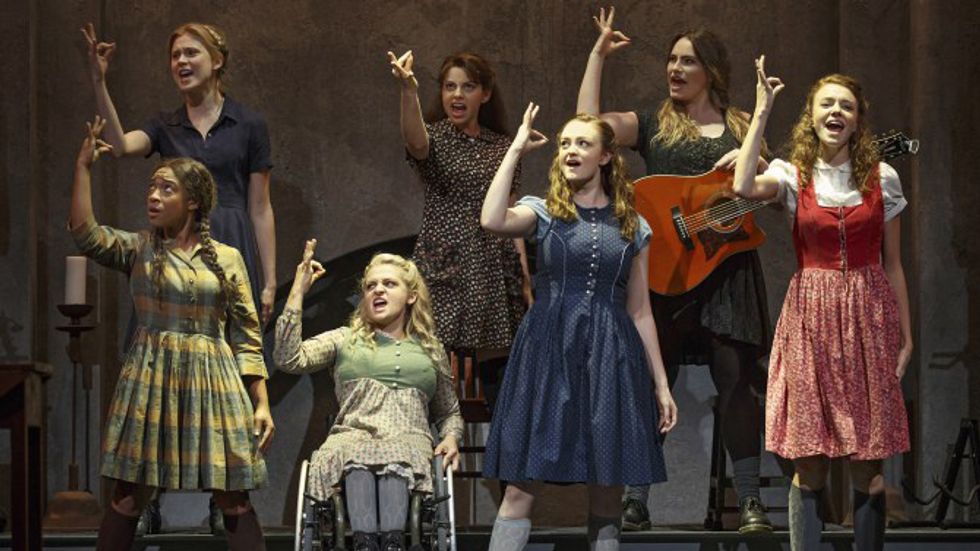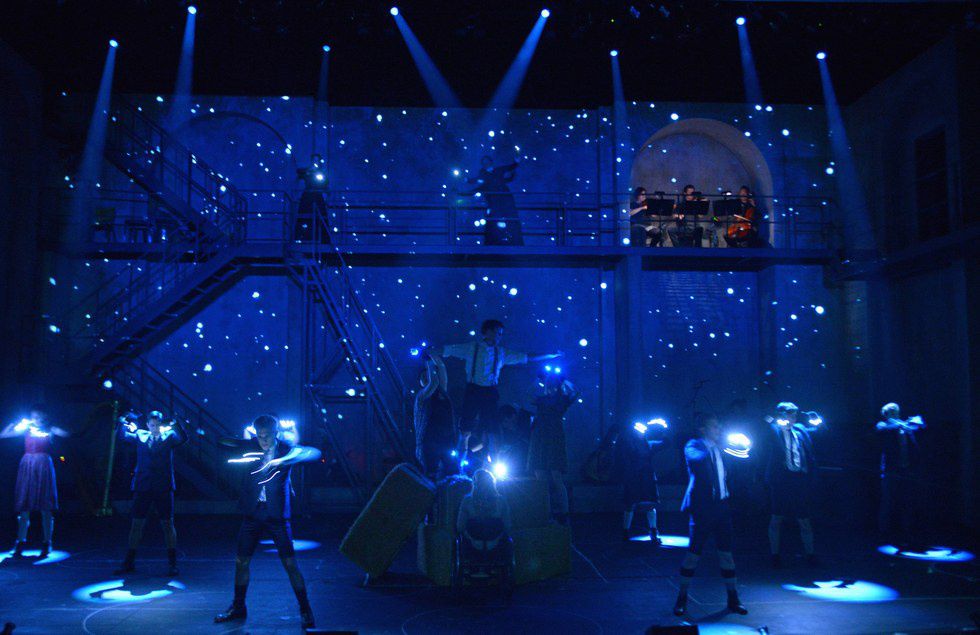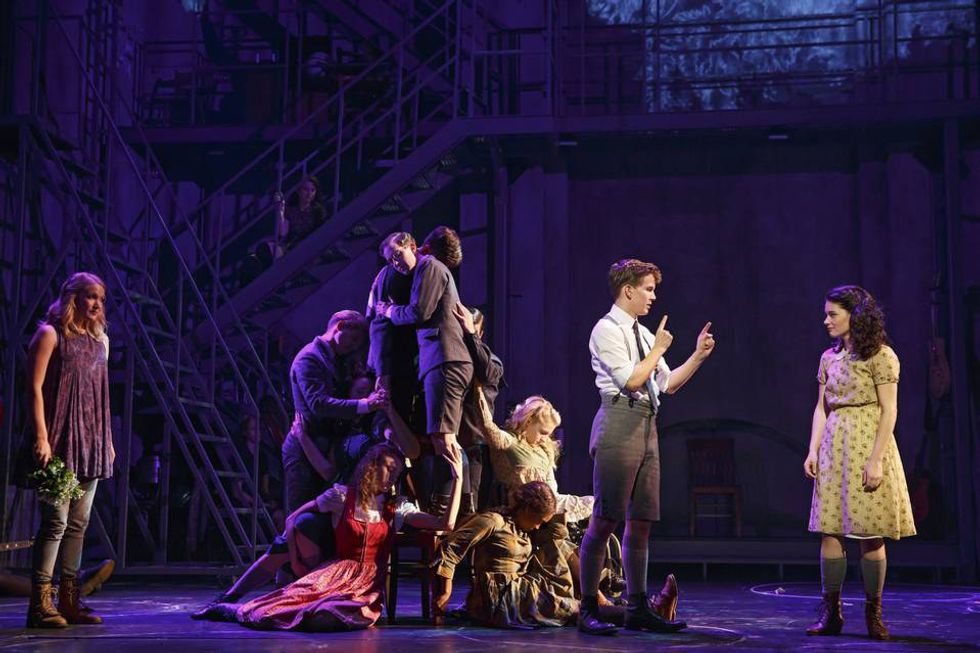On a brisk December afternoon, my sister and I experienced, truly, one of the most beautiful works of art in New York City's Brooks Atkinson Theatre. It has remained close to my heart (and tear ducts), and needs to be awarded its due in the 70th Annual Tony Awards.
Deaf West's "Spring Awakening," directed by Michael Arden, seamlessly brings together hearing and deaf performers to tell the poignant story of teenagers discovering themselves sexually and personally in 19th century Germany. The cast, led by Austin McKenzie and Sandra May Frank, is exquisite. and when I look back on those two and a half hours in the theater (which I do quite a bit), I get goosebumps.
Deaf actors in the show were paired with a hearing actor, who took on their oral voice as both deaf and hearing actors sign. Even more, they bore the role of the character's conscience, fleshed out for the audience to see. Katie Boeck stood by Sandra May Frank—Wendla Bergmann’s—side throughout the entirety of their time on stage. Boeck's lulling and powerful voice, paired with Frank's haunting portrayal of the naive, curious and tragic Wendla will forever remain one of the most beautiful things I have ever witnessed.
In total, each performance was one that produced a complete movement of the audience. It was clear just how much love each cast member had for what they were doing; in looks that they gave one another on stage, in their facial expressions, in the choreography and in the force behind each sign. Let's be real: I'm already sub-par at making choices and selecting favorites. I didn't have one favorite performer or moment, because each second that anyone spent on stage was very special and will always be cherished by me. But this was a passion project, kickstarted by director Michael Arden and fiancé Andy Mientus, also playing the cynical and sly Hanschen. The tangibility of that drive alone enlivened the stage.
The show is backed by a rockin' (literally) score, which revs the crowd in songs like "Bitch of Living" and "Totally F*cked," the latter of which was the 11 o'clock song in a show definitely not in need of one. But one of my favorite scenes was "The Mirror-Blue Night." The use of finger lights, choreography and Austin McKenzie's honest dictating of his character Melchoir's thoughts blew me over the edge. (On a fan-girl note, I know I'm not the first to say how much I appreciate him as a performer. He went to school for special education, and this show fell into his lap when he auditioned as an interpreter and was instead called back to audition for a lead. He has stepped into the light so flawlessly, and his voice is otherworldly.)
Theater holds the power to make us feel something, as the major players in this story try to find in themselves. I see this revival as a gateway to opportunity, for anyone and everyone. Ali Stroker, playing the role of Anna, is the first person in a wheelchair to ever be on Broadway. My jaw actually dropped upon hearing that, because I had taken for granted the notion that someone before her had done so. The 21st century finally made it happen. Really, though, it goes further to illustrate just how progressive this show is and how easy it will make it for communities to collide.
And not necessarily just in theater: it just goes to prove what has always been true, which is that we are all one in the same and, despite differences, have every ability to fuse as one.
It was a privilege to witness this revival of "Spring Awakening" and each person involved in it. I’m a guilty one to say I have been so touched. The feelings I get from each show I see are warm and fuzzy ones, and this performance, especially, left me with a perpetual speechlessness. I want so badly for it to be recognized accordingly at this year's Tony Awards.
Hopefully, one day all will know.





















